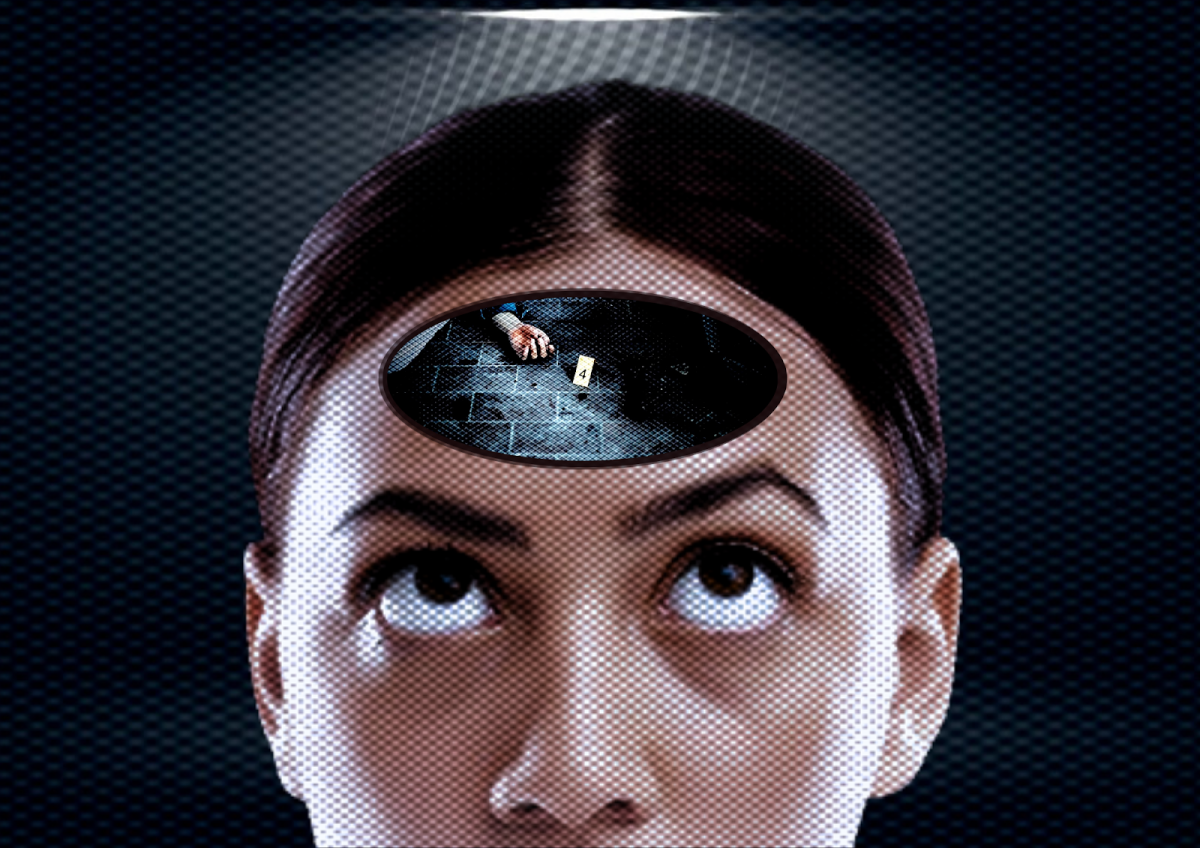The popularity of true crime is undeniable. No matter what medium it is in, whether it be movies, television, books or even podcasts, the genre has society in a tight chokehold. In fact, in 2022, 34% of adults in the United States who have listened to podcasts that year regularly listened to true crime. With the overflow of true crime content on platforms like Netflix, Spotify and TikTok, the genre has never been as accessible as it is today. It is easy to sit back and watch a series detailing gruesome murders, and while the content may be amusing, consuming too much true crime content can raise problems in emotional, mental and relationship health.
One of the scariest human traits is to be desensitized to violent and violating acts, and the tendencies of that trait to be present are raised when consuming true crime content excessively. Hearing that a victim’s body was brutally ravaged before they were killed for the first time will likely evoke appalled reactions, but when the same story is heard for the 30th time, little to no reaction will likely come about.
Repeatedly listening to stories of true crime will only make people more emotionally distanced from the actual impact of these events. In an anonymous interview with a Green Hope student, they recall the numbing effect that true crime had on their ability to react.
“I used to watch true crime a lot— there were a lot of videos that were recommended to me on YouTube. In every video, I’d hear these pretty brutal crimes described in detail and it came to a point where it [the stories of the crimes] wouldn’t phase me as much as it used to,” explained the student. They elaborate on the effects of true crime, explaining situations where the desensitization would become a problem with other things that have nothing to do with true crime. “I’d be scrolling on Twitter, and there’d be tweets about what’s going on in Palestine. It was awful, but for some reason I wasn’t reacting in the way that I should’ve, especially when there would be visuals to go alongside the Tweets. I knew then and there that I may have been influenced by true crime videos a little too much.”
The more true crime that is consumed on an almost daily basis, the less sensitive someone will be to victims that are actually affected by these acts of terror. Encountering stories about murder, rape or homicides abundantly can worsen the natural emotion of being empathetic.
Alongside becoming desensitized, watching too much of true crime can have a negative impact on someone’s brain and the way they view the outside world. According to the Cleveland Clinic, consuming too much true crime can cause people to become wary of others who they may have known for a long time to an unhealthy degree and it can also raise unnecessary attention to seemingly dangerous– but actually harmless– things.

(RZ’Naisa Self)
Of course, hearing cases of victims being murdered/assaulted by the people who they seem to trust the most would cause anyone to be more aware of who they let into their circle of friends. That being said, there is a difference between being aware and being paranoid.
Everyone should be aware of their surroundings, as anything can happen just about anywhere; it does not matter if it is at the movie theaters, school, the park or even at home—it never hurts to be aware. However, it does hurt to be paranoid, a much heightened state of awareness.
Having a mindset that everyone is actively violent can make it hard to maintain relationships if it is thought that people will end up being cold-blooded killers. Watching too much of true crime can cause feelings of paranoia that can not be cured that easily.
Like a child who has just finished watching a horror movie and can not stop checking under their bed for a monster, watching too much of true crime can have someone feeling that exact same way. The action of always looking for bad people in white vans can be mentally exhausting, and Elarya Kot (‘28) felt that way when she used to watch indulge in true crime content.
Since the age of nine, Kot often engaged with true crime content, deeming true crime as a big part of her childhood. Naturally, viewing content with extreme and gruesome details would affect anyone in the wrong way, let alone a child.
Hearing about gruesome ways that people were murdered made Kot go through experiences that otherwise would not have happened as often without watching true crime. “I had some bad dreams, [I remember] someone chasing me with a knife; I don’t watch true crime as much anymore, but I still get paranoid as I used to when I was younger.”
Without diving into the ethical and moral dilemmas of true crime as a genre, it is easy to notice how consuming too much of it can negatively impact someone’s life and thought process.
A healthier mindset can be achieved through limiting the amount of true crime content that is being consumed on a daily basis and mixing in different, healthier, genres that have nothing to do with the brutality in the world.
When certain kinds of content start to hamper one’s mental health, it is always best to take a breather and see what else is able to be consumed—the options are limitless.













































































